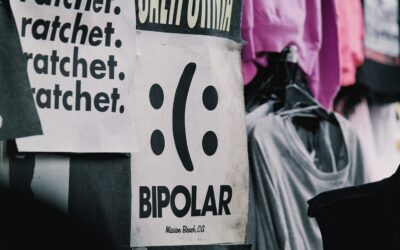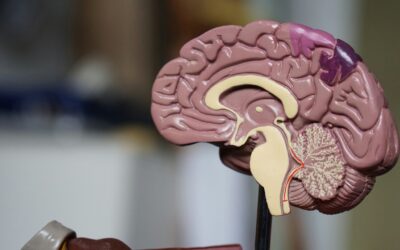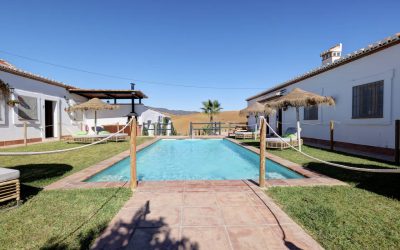Last updated: November, 2025
Cognitive Behavioral Therapy is one of the most proven and effective approaches for addiction and mental health recovery. It focuses on the relationship between thoughts, emotions, and behaviours, helping people recognise destructive patterns and replace them with healthier, more balanced responses.
At Hacienda Paradiso in Málaga, this therapy is central to our treatment philosophy. Surrounded by nature and guided by expert clinicians, individuals learn how their minds work, how habits form, and how change becomes possible when awareness meets action.
Healing through Cognitive Behavioral Therapy is not about suppressing emotions. It is about understanding them and learning how to respond with clarity, calm, and compassion.
What Is Cognitive Behavioral Therapy?
Cognitive Behavioral Therapy is a structured, goal-focused form of psychotherapy that helps people identify distorted thoughts and the emotions or behaviours that follow them. It is based on a simple but powerful principle: when we change the way we think, we can change the way we feel and act.
Through guided reflection and practical exercises, individuals learn to recognise thinking patterns such as guilt, fear, or hopelessness, and to challenge them with evidence and compassion. Over time, this process reshapes emotional responses and helps people regain control of their lives.
Cognitive Behavioral Therapy is widely used to treat:
- Substance and behavioural addictions
- Depression and mood disorders
- Anxiety and panic conditions
- Trauma and stress-related reactions
Because it teaches practical tools for daily life, its benefits continue long after therapy sessions end. A person who once used substances to cope with stress may learn instead to pause, breathe, and reframe their thoughts, choosing awareness over impulse.
How Cognitive Behavioral Therapy Supports Addiction Recovery
Addiction often begins as an attempt to manage pain or emotional discomfort. Cognitive Behavioral Therapy helps uncover the thoughts and feelings that drive this behaviour, offering healthy alternatives that restore balance and control.
Identifying Triggers
Therapy sessions focus on recognising emotional and situational triggers that increase the risk of relapse. Understanding these early signals allows individuals to act before urges take hold.
Developing Coping Strategies
Cognitive Behavioral Therapy teaches techniques for managing cravings and stress without resorting to substances, such as relaxation methods, reframing anxious thoughts, or grounding exercises.
Restructuring Behaviour
Replacing harmful routines with positive ones is essential. Engaging in physical activity, creative projects, or social connection reinforces healthier neural pathways and strengthens motivation.
Regaining Emotional Balance
As individuals learn to observe their thoughts without judgment, emotional stability increases. The therapy encourages patience, self-reflection, and choice, turning reaction into response.
For example, someone who feels lonely might previously have reached for alcohol. Through Cognitive Behavioral Therapy, they learn to recognise that thought, challenge it, and choose a different behaviour such as calling a friend, journaling, or taking a walk.
This awareness gradually rewires the brain toward resilience and calm.
The Benefits of Cognitive Behavioral Therapy
Cognitive Behavioral Therapy is distinguished by its balance between structure and flexibility. It is evidence-based, yet deeply personal, adapting to each individual’s pace and goals.
Scientifically Proven Results
Numerous studies show that this approach lowers relapse rates, improves emotional regulation, and enhances overall mental health.
Goal-Oriented and Measurable
Sessions follow clear objectives. Tracking progress provides motivation and a sense of accomplishment as individuals witness tangible change.
Practical and Actionable
Therapy equips people with tools they can use daily, such as cognitive reframing, mindfulness, and problem-solving, empowering them to manage stress independently.
Lifelong Application
Unlike insight-only therapies, Cognitive Behavioral Therapy builds enduring skills that continue to strengthen long after treatment concludes.
Adaptable Format
It works effectively in individual sessions, group therapy, and family environments. Its principles are universal, promoting communication and self-awareness in every setting.
This is why it remains the foundation of so many successful recovery programmes around the world and a core pillar at Hacienda Paradiso.

Key Techniques Used in Cognitive Behavioral Therapy
Each technique aims to replace automatic, unhelpful reactions with conscious, constructive ones.
Cognitive Restructuring
This involves identifying distorted thoughts and replacing them with more balanced perspectives. It teaches that thoughts are not facts; they are interpretations that can be changed.
Behavioural Activation
Encouraging engagement in meaningful activities such as exercise, creative work, or social connection helps restore motivation and joy.
Exposure and Desensitisation
By safely facing triggers or fears, individuals reduce avoidance and regain confidence in situations that once caused anxiety or craving.
Mindfulness Integration
Mindfulness techniques strengthen self-awareness, teaching individuals to observe their emotions without reacting impulsively.
Problem-Solving and Journaling
Recording thoughts, triggers, and responses helps track progress and provides valuable insights between sessions.
These techniques are not abstract theories; they are daily practices that empower individuals to live with awareness and intention.
Integrating Cognitive Behavioral Therapy Within Holistic Recovery
At Hacienda Paradiso, Cognitive Behavioral Therapy is seamlessly integrated into a comprehensive recovery model that addresses the whole person: body, mind, and environment.
Nature-Based Healing
Therapy sessions often take place amid natural surroundings, where open spaces and calm rhythms support reflection and grounding.
Group and Peer Work
Group discussions allow individuals to practise what they learn, sharing experiences, challenges, and progress, reinforcing accountability and empathy.
Family Participation
Families are introduced to the same therapeutic principles, learning how to communicate supportively and rebuild healthy boundaries at home.
Complementary Therapies
Mindfulness, yoga, and physical activity are combined with Cognitive Behavioral Therapy to enhance emotional regulation and reduce stress.
This multidimensional approach allows recovery to feel natural, connected, and sustainable. Healing becomes a lifestyle, not a temporary goal.

Lasting Change Through Awareness and Compassion
Cognitive Behavioral Therapy transforms the way individuals relate to themselves and the world around them. It teaches that thoughts are choices, and every choice is an opportunity to heal.
Recovery is not linear. It is built from moments of awareness, courage, and small daily victories. Each reflection, each pause, each decision to stay present helps rebuild trust, confidence, and stability.
At Hacienda Paradiso, this journey unfolds within an environment designed for calm and renewal. Surrounded by nature and supported by experienced therapists, individuals rediscover clarity, connection, and purpose.
Frequently Asked Questions: Cognitive Behavioral Therapy in Recovery
Cognitive Behavioral Therapy is a structured, evidence-based approach that teaches people to identify unhelpful thoughts and replace them with balanced, realistic ones. In recovery, it reduces cravings, improves emotional regulation, and supports lasting behaviour change.
By linking thoughts, feelings, and actions, Cognitive Behavioral Therapy helps individuals recognise triggers before they escalate. Practical tools such as cognitive reframing, breathing techniques, and behaviour scheduling create healthier routines that make relapse less likely. Over time, the brain learns new pathways for coping and reward. In a residential setting like Hacienda Paradiso, Cognitive Behavioral Therapy is woven into daily life alongside mindfulness, group work, and activity-based therapies. The goal is not perfection but steady progress, with skills that continue long after treatment ends. For many, this approach restores a sense of calm, agency, and hope.
Many people notice early benefits within a few weeks, and meaningful improvements often emerge within 8 to 12 weeks. The total duration depends on individual goals, history, and co-occurring challenges.
Cognitive Behavioral Therapy is designed to be time-efficient and goal-oriented. Short cycles can focus on coping with cravings or anxiety, while longer pathways address deeper patterns like perfectionism, shame, or avoidance.
Consistency between sessions matters: brief daily practices, thought journals, and scheduled activities consolidate learning. When combined with holistic elements (sleep hygiene, movement, mindful breathing, nature exposure) results tend to deepen. For complex presentations or dual diagnosis, continuing therapy at a lower frequency helps sustain gains and prevent relapse. The emphasis is always on practical skills that keep working in real life.
Yes. Cognitive Behavioral Therapy integrates well with medical care, mindfulness, family work, and other evidence-based approaches. This combination often enhances outcomes and makes change more sustainable.
In integrated programmes, a physician may address sleep, mood, or withdrawal, while Cognitive Behavioral Therapy targets the thinking and behavioural patterns that maintain the cycle. Mindfulness adds present-moment awareness; yoga or gentle exercise supports stress regulation; group therapy strengthens accountability and belonging. Family sessions can translate Cognitive Behavioral Therapy concepts into shared language at home, improving communication and boundaries. When approaches are coordinated, individuals experience a cohesive path rather than separate, competing treatments. The result is comprehensive care that supports both the brain and the broader environment where recovery unfolds.
Sessions follow a clear structure: a brief check-in, a focused agenda, skill practice, and a take-home plan. The emphasis is practical — learning tools that can be used the same day.
A therapist and individual might review recent triggers, map the thought–feeling–behaviour chain, and identify one belief to reframe. Next, they practise a technique such as cognitive restructuring, urge surfing, or problem-solving. Behavioural activation may include scheduling meaningful activities that lift mood and reduce isolation. To support progress, many programmes use brief between-session exercises: a thought log, a coping card for high-risk moments, or a simple breathing routine before sleep. Over time, sessions build a personalised toolkit. People often describe feeling clearer, more grounded, and better able to respond rather than react.
Yes. Cognitive Behavioral Therapy adapts well to family and couples work, helping partners and relatives communicate calmly, set kind boundaries, and reinforce healthy routines.
In family or couples formats, the focus is on patterns between people: assumptions, escalations, and unspoken expectations. Cognitive Behavioral Therapy offers shared frameworks for difficult moments — for example, pausing to identify a trigger, naming emotions without blame, and choosing one constructive action. Simple rituals, like brief daily check-ins or mindful walks, support connection while reducing stress. When loved ones understand the same tools, home becomes a steadier environment, and progress inside therapy translates into everyday life. For many families, this approach restores trust and turns recovery into a collaborative path rather than a solitary struggle.









